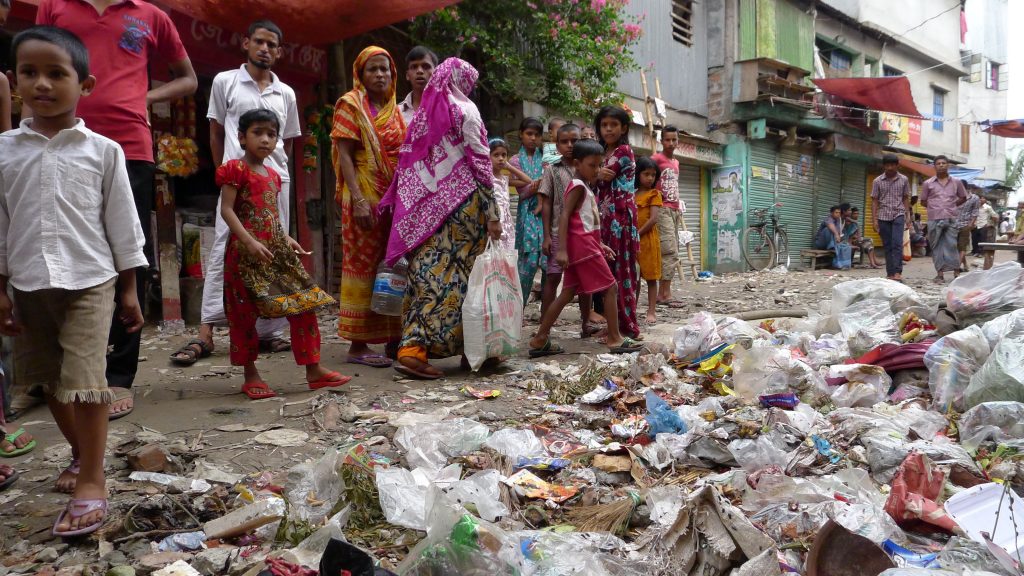With the novel Coronavirus spreading all across the world, hitting one country after another, many governments have now imposed strict restrictions on its people to protect them.
Italy, which became the epicenter of the disease after China, reporting hundreds of deaths in a single day, later announced a lockdown to stop the spread of the virus. Likewise, many others also followed suit and now Bangladesh’s few areas are also partially in lockdown where multiple cases of testing positive of the disease were found.
While India now has a strict (janta) curfew for 21 long days, which aims at limiting interaction between people and promoting social-distancing, there are still many Covid-19 cases that are being reported in across the country same as goes to the Pakistan also, where few provinces of its announced lockdown including main commercial hub, Karachi.
Doctors and other health experts, along with many government authorities, are now stressing on the importance of citizens maintaining a safe distance from each other so as to protect oneself and others who might be at a higher risk of contracting the disease.
Ever since the lockdown in many countries, fewer cases have been reported in where Wuhan is the role player, but can it work in the long run?
When it comes to countries like ours — the category of which includes India, Pakistan and many in Africa — one needs to realize that social-distancing is not the ideal solution. Why so? The South Asian and African regions are densely populated. This means that while the population is quite high, people also live in very close proximity to each other.
People in these countries live in joint families, which can mean about 15 people under the same roof, and those living in slums. This leads to the sharing of common living spaces, or in the case of slums, common washing or cooking areas. In joint families, maintaining one’s distance from the other can be seen as a sign of disrespect and dishonor, which is why many succumb to ignoring all calls of trying to flatten the curve.
Refusing to have meals together, sharing clothing items, cutlery, etc. can be taken as sign of disregard leading to problems within the family. It is often also very hard to make the elders of the family understand the need for social-distancing, especially during such a pandemic, when it’s considered to be one of the leading precautionary measures. And it can be understood while looking at the mosque.
Moreover, with schools, universities and offices closing down, and sometimes not a strict lockdown in place, families like to make use of the “free time” to visit relatives and friends or make a trip to the beach, leading to a potential spread of disease instead of containing it. And we witnessed these few days ago where authority had to shut down all the recreational places for avoiding congregation. When it comes to slums or low-income communities, the different houses are located very close to each other, with many even sharing main entrances or staircases. Even if there is a nuclear family living in each sub-portion, the number of family members is too high for the area they have, leading to them being in very close contact, not only with the other people of the locality, but also of the same family.
Low-income families often include a member being a daily earner, which means that he or she will be stepping out of the house for work, so that the rest of them don’t go to bed hungry. This eventually leads him or her having to interact with others and being a potential carrier of the coronavirus in the event he or she gets infected. So how does one impose social-distancing?
While a strict lockdown and curfew might be the option for many countries, in densely-populated areas, it’s not an easy answer. That’s why Bangladesh government couldn’t impose strict lockdown despite a massive possibilities of sparking communal infection of this virus. Police officials cannot stop the people in slums from living in the slums, just like they cannot ask people living in joint families to leave their families and change their living arrangements.
Constant awareness about its importance should be disseminated, but while doing so, it should be realized that there is a very high chance, it will not bring about a major difference. So, leaving a little portion for spreading awareness for social distance, government should quicken preparing more and more isolation centers thus any suspected patient can be transferred there instead of sending them back home referring stay in “so-called quarantine“.
If the concerned authority takes all the calls seriously as a new case of the Corona virus and shifts to the immediate isolation centers lack of proper maintaining of social distance would not affect much. But regrettably our government somehow failed to show its seriousness and it’s nothing new for its unfortunate people.


